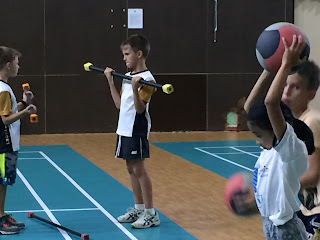Want to know more? Check it out...
True Sport
A growing body of research literature finds that in addition to improved physical health, sport plays a primarily positive role in youth development, including improved academic achievement, higher self-esteem, fewer behavioral problems, and better psychosocial.29,30 Many studies focus on the effects of sport on the five “C’s”—competence, confidence, connections, character, and caring—which are considered critical components of positive youth development.31,32 It has long been thought that the many facets of playing sport—the discipline of training, learning teamwork, following the leadership of coaches and captains, learning to lose—provide lifelong skills for athletes.
Sports do not build character. They reveal it. John Wooden, Legendary UCLA Basketball Coach
The literature on youth sport stresses the positive effects of participation in learning the important life skills of goal setting and time management combined with enjoyment; the development of a strong sense of morality; and the development of an appreciation of diversity.33 Longitudinal studies have shown that children and youth participating in sport, when compared to peers who do not play sport, exhibit:
• higher grades, expectations, and attainment;34
• greater personal confidence and self-esteem;
• greater connections with school— that is, greater attachment and support from adults;
• stronger peer relationships;
• more academically oriented friends;
• greater family attachment and more frequent interactions with parents;
• more restraint in avoiding risky behavior; and
• greater involvement in volunteer work (see Linver et al.35 for a summary).
These outcomes are thought to be related to the contribution of sport to learning values and skills associated with initiative, social cohesion, self-control, persistence, and responsibility.36 Theories of positive youth development stress the importance of sport in acquiring skills that are beneficial in other domains (e.g., school, family, work) that lead to better adaptive skills.37












































